“Simplicity is necessary to preserve the speaker’s character for sincerity. You heard before how necessary piety is, which is the proper parent of sincerity in the pulpit. Now it is not easy to preserve the opinion of piety and sincerity in the pulpit when there is much ornament. Besides the danger of much affected pomp or foppery of style, a discourse very highly polished, even in the truest taste, is apt to suggest to the audience that a man is preaching himself and not the cross of Christ.” — Select Works of John Witherspoon, 297
A New Robe
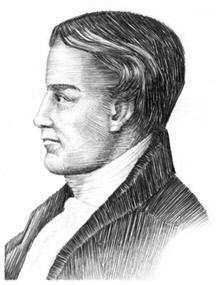 Yesterday, I preached in my doctoral robe for the first time at Redeemer. It reminded me of a letter I discovered while rummaging through M’Cheyne’s manuscripts last year.
Yesterday, I preached in my doctoral robe for the first time at Redeemer. It reminded me of a letter I discovered while rummaging through M’Cheyne’s manuscripts last year.
On January 17, 1837, two months after he was installed as the minister of St. Peter’s Dundee, M’Cheyne informed his mother that he had finally received a new Geneva gown. He said,
I was preaching on Sabbath afternoon in my new silk gown which you would have been very proud to see. I daresay it is so large and handsome that you would take me for a Bishop at the very least. I hope it may be like the mantle of Elijah and bring with it a double portion of the spirit from on high
Although no one would confuse me for a bishop, I daresay that M’Cheyne’s prayer for a double portion of Elijah’s spirit is a most worthy request.
Resolutions for Personal Revival
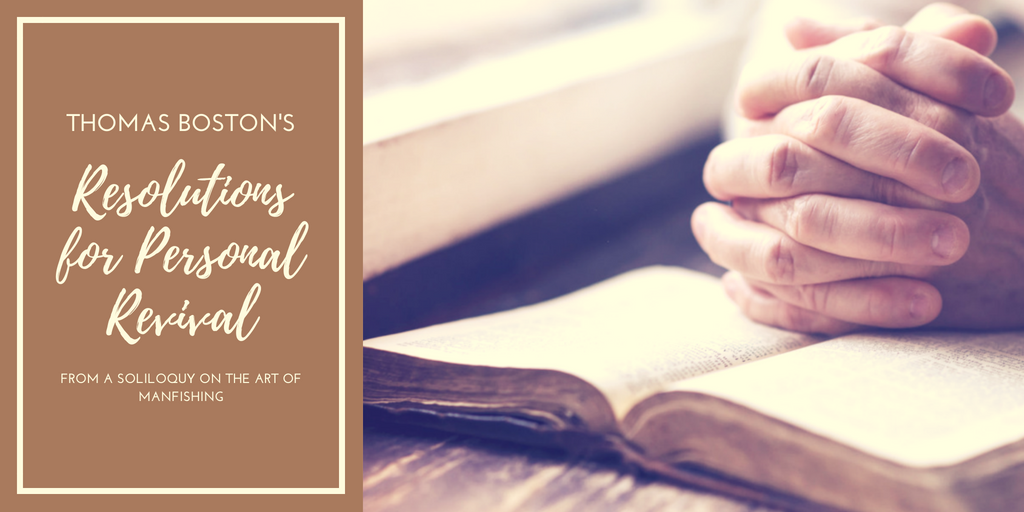
Our sixth child, Boston Stone, is named after the great Scottish theologian Thomas Boston. His work, Human Nature in Its Fourfold State, was the bestselling Scottish book of the 18th century. But my favorite volume from Boston is one he wrote at the age of twenty-two. It was first published after he died and has remained in print for almost three hundred years.
Not long before he entered into glory, he wrote something of the book’s background in his journal. He recorded on January 6, 1699:
Reading in secret, my heart was touched with Matt. 4:19, “Follow me, and I will make you fishers of men.” My soul cried out for the accomplishing of that to me, and I was very desirous to know how I might follow Christ, so as to become a fisher of men; and for my own instruction in that point, I addressed myself to the consideration of it in that manner. . . . That scribble gives an idea of the then temper of my spirit.
That “scribble” was A Soliloquy on the Art of Man-Fishing.
8 Resolutions for Personal Revival
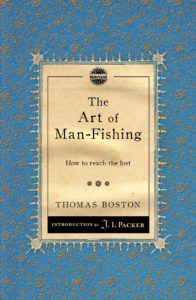 I believe one of the most significant needs in our time is a revival of Christ-centered, sinner-saving, and saint-sanctifying piety in the ministry. Perhaps the decline we continue to see in the Church’s spirituality is a direct result of declining pastoral piety. May we not be rash to point the finger outward, however. Let us first deal with ourselves, falling upon Christ’s mercy and grace. Revival in the church begins with a reformation of the ministry.
I believe one of the most significant needs in our time is a revival of Christ-centered, sinner-saving, and saint-sanctifying piety in the ministry. Perhaps the decline we continue to see in the Church’s spirituality is a direct result of declining pastoral piety. May we not be rash to point the finger outward, however. Let us first deal with ourselves, falling upon Christ’s mercy and grace. Revival in the church begins with a reformation of the ministry.
Thomas Boston knew this to be the case. And so, from the outset of his ministry, he resolved to follow an eight-fold plan for personal renewal, all laid out in The Art of Manfishing. May his purpose stir us to similar schemes and hopes.
- “In imitation of Christ and His apostles, and to get good done, I purpose to rise timely every morning.”
- “To prepare as soon as I am up some work to be, and how and when to do it; to engage my heart to it; and even to call myself to account and to mourn over my failings.”
- “To spend a sufficient portion of time every day in prayer; reading, meditating, spiritual exercises: morning, midday, evening, and ere I go to bed.”
- “Once in the month, either at the end or middle of it, I keep a day of humiliation for the public condition, for the Lord’s people and their sad condition, for raising up the work and people of God.”
- “I spend, besides this, one day for my own private condition, in fighting against spiritual evils and to get my heart more holy, or to get some spiritual exercise accomplished, once in six months.”
- “I spend once every week four hours over and above my daily portion in private, for some special causes either relating to myself or others.”
- “To spend some time on Saturday, towards night, for preparation for the Lord’s Day.”
- “To spend six or seven days together, once a year, when most convenient, wholly and only on spiritual accounts.”
The Necessary Ingredients
 “It is living fellowship with a living Savior which, transforming us into his image, fits us for being able and successful ministers of the gospel. Without this nothing else will avail. Neither orthodoxy, nor learning, nor eloquence, nor power of argument, nor zeal, nor fervor, will accomplish naught without this. It is this that gives power to our words and persuasiveness to our arguments, making them either as the balm of Gilead to the wounded spirit or as sharp arrows of the might to the conscience of the stouthearted rebel . . . Nearness to Christ, intimacy with him, assimilation to his character—these are the elements of a minsitry with power.” — Horatius Bonar, Words to Winners of Souls
“It is living fellowship with a living Savior which, transforming us into his image, fits us for being able and successful ministers of the gospel. Without this nothing else will avail. Neither orthodoxy, nor learning, nor eloquence, nor power of argument, nor zeal, nor fervor, will accomplish naught without this. It is this that gives power to our words and persuasiveness to our arguments, making them either as the balm of Gilead to the wounded spirit or as sharp arrows of the might to the conscience of the stouthearted rebel . . . Nearness to Christ, intimacy with him, assimilation to his character—these are the elements of a minsitry with power.” — Horatius Bonar, Words to Winners of Souls
Simple, Yet Significant Truth
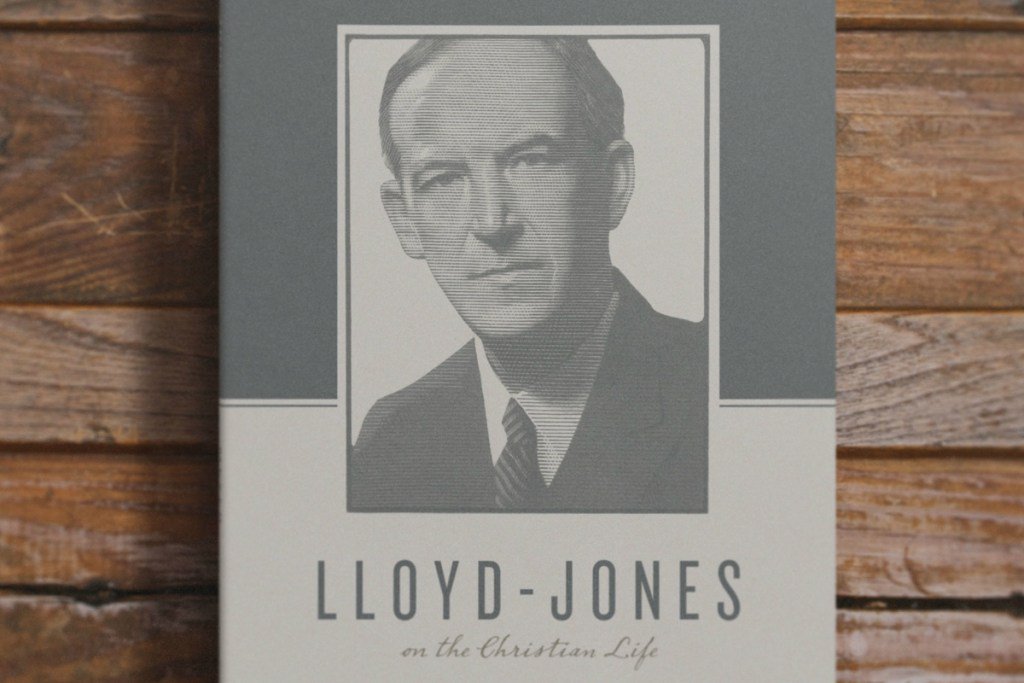
In his foreword to Jason Meyer’s Martyn Lloyd-Jones on the Christian Life: Doctrine and Life as Fuel and Fire, Sinclair Ferguson writes, “[Lloyd-Jones] did not live to preach; he lived for Christ. All preachers are differently wired; there is a wide variety in gifts and temperaments, in experience and understanding. But when a man is given over to the love of Christ in his living, it cannot be hidden in his preaching; just as sadly, if he is given over to the love of self, it will also show.”
Studying Presbyterian History in America
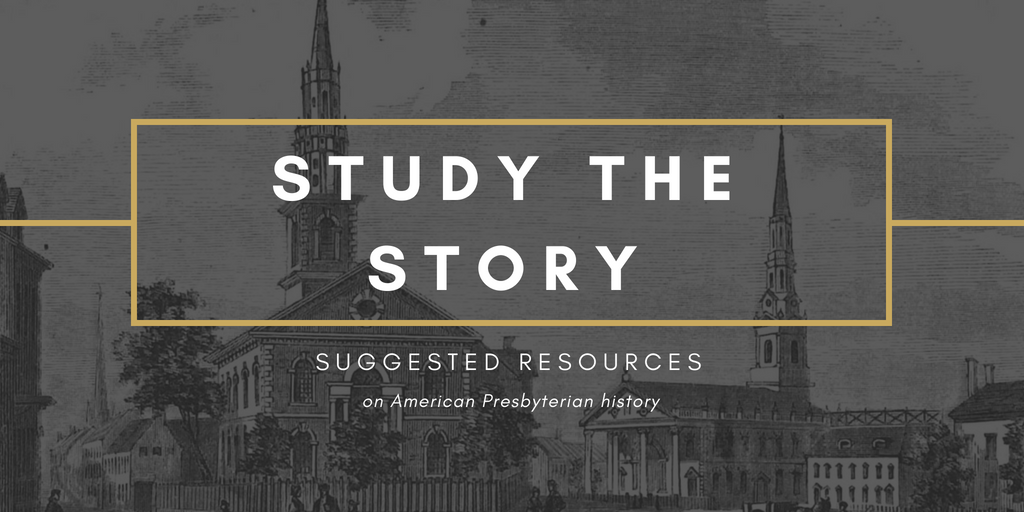
Cicero once quipped, “To know nothing of what happened before you were born is to forever remain a child.” Or, as George Santayana (likely) said, “Those who cannot remember the past are condemned to repeat it.”
There are many reasons why we should study history. Surely, at the most basic level, we can all agree that Christians should be historically-interested people because we are to know, love, and grow in the God who has revealed Himself in history.
Learning about Your Family
Lord willing, my denomination will gather for its annual General Assembly two weeks from today. Overtures will be debated, motions will be made, votes will be cast, and worship will be offered. If you listen carefully, ne’er a year goes by without someone noticing how certain contemporary issues sound so similar to matters discussed or decided in years past. Indeed, one can hardly be a faithful commissioner without recognizing that we stand in the shadows of old giants, all of whom had feet of clay. Such recognition means we don’t conduct ourselves in isolation, but in connection to what has gone before us.
Our story is a family history. Our forebears died for truth we take for granted. They made right decisions and pursued wrong agendas. We want to know about both so that we might walk in wisdom.
6 Volumes Worth Reading
Every ordained minister in the PCA must pass an examination on the denomination’s history. We are thus supposedly somewhat sharp on the story. Yet, life and ministry are always consuming. Facts, dates, and conclusions memorized for a test often evacuate the mind.
In order, then, that we might hold fast and have discernment, here are several volumes on American Presbyterianism from which every pastor, officer, or church member can profit. I have ordered them by ease of reading.
 Seeking a Better Country: 300 Years of American Presbyterianism by D. G. Hart and John Muether. Published on the 300th anniversary of the establishment of the first presbytery in American, Hart and Muether provide no uncritical celebration of our history. They offer Presbyterians “a history that will yield discernment and wisdom about the strengths and weaknesses of their tradition, as well as the degree to which the circumstances of being American have affected their identity as Presbyterians.” The book is clear and covers all the vital ground. If you know the authors’ other work, you won’t be surprised by many of their critiques. Nevertheless, Seeking a Better Country is the best entry-point available today.
Seeking a Better Country: 300 Years of American Presbyterianism by D. G. Hart and John Muether. Published on the 300th anniversary of the establishment of the first presbytery in American, Hart and Muether provide no uncritical celebration of our history. They offer Presbyterians “a history that will yield discernment and wisdom about the strengths and weaknesses of their tradition, as well as the degree to which the circumstances of being American have affected their identity as Presbyterians.” The book is clear and covers all the vital ground. If you know the authors’ other work, you won’t be surprised by many of their critiques. Nevertheless, Seeking a Better Country is the best entry-point available today.
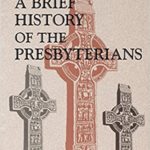 A Brief History of the Presbyterians by James Smylie. The title communicates everything you need to know of Smylie’s intent. And, gratefully, he succeeds. His work quickly covers all the essentials of the American story from a mainline point of view. He gives appropriate attention to some of the oft-forgotten elements of our story.
A Brief History of the Presbyterians by James Smylie. The title communicates everything you need to know of Smylie’s intent. And, gratefully, he succeeds. His work quickly covers all the essentials of the American story from a mainline point of view. He gives appropriate attention to some of the oft-forgotten elements of our story.
 Reformed Theology in America: A History of Its Modern Development edited by David Wells. I think one of the easiest, and most enjoyable, ways to learn history is through biography. This underrated volume introduces readers to the principal players in 19th-century American Presbyterianism (which was its zenith point of power): Hodge, Warfield, Machen, Dabney, Thornwell, and it also branches out into the Dutch tradition with Berkhof and Van Til.
Reformed Theology in America: A History of Its Modern Development edited by David Wells. I think one of the easiest, and most enjoyable, ways to learn history is through biography. This underrated volume introduces readers to the principal players in 19th-century American Presbyterianism (which was its zenith point of power): Hodge, Warfield, Machen, Dabney, Thornwell, and it also branches out into the Dutch tradition with Berkhof and Van Til.
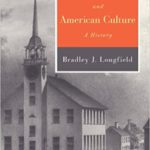 Presbyterians and American Culture by Bradley Longfield. Longfield’s first book, The Presbyterian Controversy, should be required reading for any Presbyterian pastor, but I’ve left it off as it only focuses on part of the American story. His more recent work is my favorite book on this list. Longfield ably demonstrates how close the relationship between American Presbyterianism and American culture was from the founding of both institutions. This book offers the double benefit of learning both about the church and the country.
Presbyterians and American Culture by Bradley Longfield. Longfield’s first book, The Presbyterian Controversy, should be required reading for any Presbyterian pastor, but I’ve left it off as it only focuses on part of the American story. His more recent work is my favorite book on this list. Longfield ably demonstrates how close the relationship between American Presbyterianism and American culture was from the founding of both institutions. This book offers the double benefit of learning both about the church and the country.
If you’re looking for more specific denominational histories, especially from a conservative confessionalist view, consider:
- For the PCA, see For a Continuing Church: The Roots of the Presbyterian Church in America by Sean Michael Lucas.
- For the OPC, see Fighting the Good Fight: A Brief History of the Orthodox Presbyterian Church by D. G. Hart and John Muether.
Extra Credit
Here are two other works that well worth your time:
- Princeton Seminary by David Calhoun. It’s impossible to understand American Presbyterianism apart from Princeton Seminary. Calhoun’s work on the subject is simply magisterial.
- Presbyterian and Reformed Churches: A Global History by James McGoldrick. It does a heart and mind good to remember that our God is Lord of the nations. The full Presbyterian story is thus about much more than America. McGoldrick’s work is readable and instructive.
Conviction Served Ripe and Ready
“Prayer is the soul’s traffic with heaven. God comes down to us by his Spirit, and we go up to him by prayer . . . A godly man cannot live without prayer. A man cannot live unless he takes his breath, nor can the soul, unless it breathes forth its desires to God. As soon as the babe of grace is born, it cries; no sooner was Paul converted than ‘behold, he prayed’ (Acts 9:11) . . . A godly man is on the mount of prayer every day; he begins the day with prayer; before he opens his shop, he opens his heart to God. We burn sweet perfumes in our houses; a godly man’s house is ‘a house of perfume’; he airs it with the incense of prayer; he engages in no business without seeking God.” — Thomas Watson, The Godly Man’s Picture
Three Years Later (Reflections on Graduation Day)

Three years ago, I began my Ph.D. studies at The Institution. Eight seminars, four colloquia, two research languages, two sets of comprehensive exams, and one dissertation later, I’m finally finished. Sometime after 11:00 a.m. EST this morning, I’ll walk across the stage to receive my doctoral hood and degree. What a satisfying joy it shall be.
In no particular order, here are a series of reflections and lessons learned after my time at SBTS.
20 Takeaways and Tell-Alls
- If you’re married and decide to do any graduate or post-graduate work, make sure your wife understands—and welcomes—the sacrifice your studies will require. I could never have done it all without my wife’s skill at home.
- If you’re in ministry and decide to do any graduate or post-graduate work, make sure you live your studies before your congregation. Faithful studies should always increase your ability and humility. Put 1 Timothy 4:15 into practice. Demonstrate your progress in Christ before their watching eyes.
- An interested and able supervisor makes all the difference. Dr. Yuille has been a grace in my life.
- I entered the Ph.D. program intimidated at all the required writing. After my first seminar, I dreaded all writing projects. Now, few things get me as excited as putting pen to paper.
- Of all the seminary discussions I had to lead, my favorite to prepare for was on Dietrich Bonhoeffer.
- Of all the seminary discussions I had to lead, my least favorite was on Eusebius of Caesarea.
- The worst book I had to read for a seminar was Weaving the Visions. Stay away, my friends, stay away.
- My personal favorite textbook was Puritan Spirituality: The Fear of God in the Affective Theology of George Swinnock. It’s (probably) the best scholarly summation of Puritan piety you’ve never heard of.
- Few things are as essential to diligent research work than a fascination with your dissertation subject.
- If you can, pick a dissertation subject that appeals to more than just your mother and advisor.
- Good Christian writing depends on good Bible reading.
- Pray for God’s blessing on your studies.
- The academy thrives on novelty and originality; pastoral ministry doesn’t.
- Discover what time during the day you read and write best, and guard it with all vigilance.
- A few good friends in seminary will sustain you through those days and nights when you want to give up.
- Doctoral studies are a boot camp in humility. You’ll never be the smartest scholar in the room.
- My studies seem to have forever altered my reading habits. I’m more content than ever not to read books cover to cover—for better or worse.
- Life in the seminary world is dangerous. You can quickly forget that there’s a whole wide world off campus that doesn’t care much about your studies.
- Louisville has really, really good food. I have many fond memories of student lunches at Joella’s Hot Chicken.
- I always thought I’d feel different when I finally finished the degree. I don’t. I’m still just a plain old pastor, husband, and father.
A Worthy Model
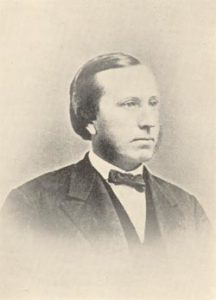 In his edited work on the sermons of John L. Girardeau, George Blackburn describes the great preacher’s pulpit manner. Let every herald today labor to emulate this style:
In his edited work on the sermons of John L. Girardeau, George Blackburn describes the great preacher’s pulpit manner. Let every herald today labor to emulate this style:
His demeanor in the pulpit was dignified, grave and earnest, indicating that he fully realized his responsibility as an ambassador of Christ and a minister to dying men. I can never forget the solemn countenance he carried into the pulpit and the earnestness with which he read the hymns and conducted the services. And he threw his whole self, body, mind and spirit, into his preaching, speaking with a fervor such as I have rarely seen equalled in the pulpit, and which deeply impressed his hearers with his zeal for God and for their souls.
Reductionistic Doctrinal Preaching
Over the last decade or so, Christ-centered, biblical-theological, moralistic-averse preaching has made a resurgence of sorts in the evangelical world. One consequence, if we have ears to hear, is that such preaching can often press the mute button when it comes to Scripture’s imperatives.
He Puts It So Well
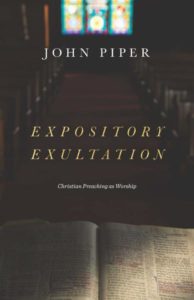 Earlier today, I read through part of John Piper’s latest book Expository Exultation: Christian Preaching and Worship. In chapter 12, Piper points out “two mistakes to avoid” when preaching a command. The first is mere moralism—”Just do it.” The second is “reductionistic doctrinal preaching.” Piper says on this mistake,
Earlier today, I read through part of John Piper’s latest book Expository Exultation: Christian Preaching and Worship. In chapter 12, Piper points out “two mistakes to avoid” when preaching a command. The first is mere moralism—”Just do it.” The second is “reductionistic doctrinal preaching.” Piper says on this mistake,
The second mistake (“You can’t do it; but Christ did it perfectly, so turn away from your doing to his doing, and enjoy justification by imputed righteousness”) minimizes the seriousness of the command, diverts attention from the real necessity of the imperative, leads to a kind of preaching that oversimplifies the urgency and complexity of Christian obedience, and turns every sermon into a predictable soteriological crescendo that trains the people to tune out and start putting their coats on. It silences the specific riches of the text by preempting them with unwarranted applications of right doctrine.”
To which I wrote in the margin, “Amen.”
Gratefully, Piper doesn’t only diagnose the problem; he offers a proposed solution. But you’ll have to take up the book and read it to find out what that answer is. Tolle lege!
